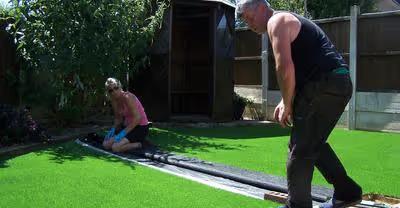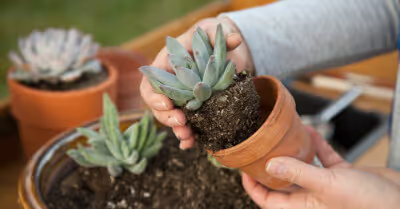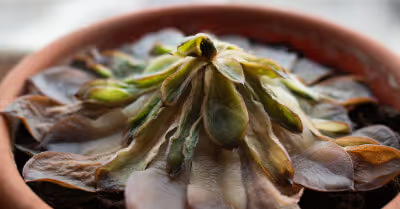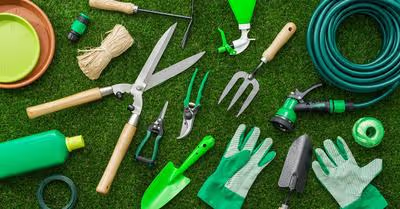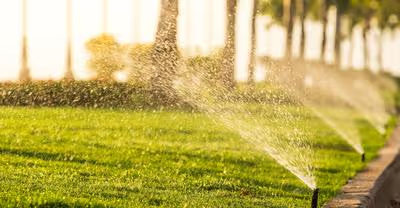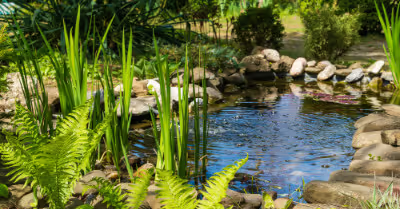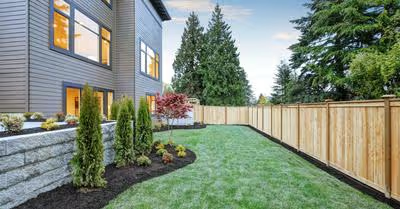Table of Contents
10 Different Types of Pavers for Your Garden
Looking for something to add more beauty to your patio, walkway or some other space in your landscape? Pavers help you do that, even on a tight budget. Here are nine types of pavers for your garden landscape and the pros and cons of each:
1. Bluestone Pavers
A member of the sandstone family, bluestone is a very sustainable material. It comes in a wide range of shapes and sizes and is commonly used to create elegant-looking driveways.
You can leave the massive-sized slabs as is, have them cut into tiles with distinct, unique patterns or purchase them crushed into gravel. They come in royal blue, but as they fade from sunlight and exposure to outside elements, the slabs become light grey.
When buying bluestone pavers, keep in mind that the thicker they are the more they cost. Unique patterns help drive up the cost as well. Thermal pavers are also fairly expensive. For a more cost-efficient purchase, look for irregular bluestone pavers.
Pros of Bluestone Pavers
- Very durable material
- Can be manipulated into a basic shape
- Can be combined with an assortment of paver materials
Cons Bluestone Pavers
- Must be careful to purchase authentic bluestone as there are counterfeits on the market
- Authentic bluestone can be costly because it’s actually a rare paving material
2. Brick Pavers
Used for centuries, brick pavers are very common in landscapes. They are constructed by baking molded clay in a furnace or kiln. Then, they are set in a sand base or mortar on a surface, such as a walkway or a driveway.
Bricks are versatile for creating hardscapes. They come in a wide variety of colors, characters, textures and styles. You can lay them in single patterns and colors or use a combination of both for a more unique design.
Pros of Brick Pavers
- Choose from many different shapes and colors
- Lay them in distinct patterns for more visual appeal
- Made from natural materials, so they’re environmentally friendly
- Can be reused over and over again unless they crack or break
Cons of Brick Pavers
- Slightly fragile and can break, chip or crack over time
- When using them to install driveways, they require regular maintenance and a good base to withstand the heavy weight of vehicles
3. Cobblestone Pavers
Cobblestone is another type of paver that has been used in landscapes for centuries. It’s tough, durable and long-lasting because it’s usually constructed using granite, sandstone, limestone or basalt. This type of paver is very aesthetically pleasing.
Pros of Cobblestone Pavers
- The only real maintenance needed is a thorough washing two times annually
- If installed correctly, remains durable for decades
- Comes in a wide range of colors and styles
- No special machinery or skills needed to install it
Cons of Cobblestone Pavers
- Costs two or three times the amount of most other pavers
- Installation is time-consuming and requires labor
4. Concrete Pavers
One of the most popular options for installing roadways and driveways, concrete pavers are completely customizable. This flooring option comes in many different sizes, colors and textures. You can even customize the thickness as the pavers are being installed.
Installing concrete pavers is fairly simple and hassle-free because it’s easy to cut and it’s uniform once laid. They are perfect for DIY paver installers who want to put in very little effort. Plus, they give your landscape a natural feel and look.
Pros of Concrete Pavers
- Simple installation
- Choose from numerous sizes, shapes, styles and colors
- Much cheaper than brick pavers because the raw materials used are low in cost
- The processing these pavers go through make them much more long-lasting than poured concrete
Cons of Concrete Pavers
- Artificial pigments used for customizing colors, which fade more and more over time
- Extreme temperatures may cause them to crack
- Prolonging life requires sealing which is high maintenance
- The inexpensive raw materials shorten the longevity of the pavers
5. Flagstone Pavers
This sandy rock is very popular for paving outdoor patios. They are constructed in very unique shapes which basically fit together in place like a puzzle. Although they can be found in an array of colors, the most common ones are red and gray hues.
Flagstone pavers are thinner than both concrete and brick pavers. Therefore, this material is not recommended for paving driveways because they can’t hold the weight of vehicles.
Pros of Flagstone Pavers
- Perfect for flooring because the surface and texture are non-stick
- Much more robust than concrete pavers so they last longer
- Comes in numerous shapes, sizes and colors, so it’s a versatile hardscape
- Various shapes make it simple to create unique, customized patterns
- Colors and shapes blend in well with other types of landscape pavers
- Very unique finish because it formed naturally
Cons of Flagstone Pavers
- Output may not be exactly as planned because they are natural materials
- Mined and shipped directly from where it’s sourced, making it more costly than many other pavers
6. Gravel Pavers
Gravel is an excellent choice for installing driveways and walkways. They are very cost-efficient and versatile. And there are numerous types of gravel pavers to choose from, including clay rocks and marble.
This is a popular alternative to paving with concrete. Many homeowners replace their concrete hardscapes with these types of pavers. Some popular choices for this replacement are quarry, crushed stone and pea gravel.
Pros of Gravel Pavers
- Material is eco-friendly
- Simple to maintain
- Great DIY paver install because it can be done quickly
- Low-cost materials and low-cost installation
- Won’t damage the surface area where it’s being installed
Cons of Gravel Pavers
- Some pieces may sink down or get kicked out of the bed
- Rainy and snowy months may wash some gravel away
- Gaps and holes may appear within the surface area
- Can make debris fly around getting the gravel dirty in the process
7. Marble Pavers
When limestone comes in contact with extremely high heat, the process forms marble. A unique pattern is created because this process mixes up the crystal particles randomly.
These pavers are commonly used to install walkways, driveways and patios on both commercial and residential properties. They create an elegant atmosphere, giving your landscape a graceful look.
Pros of Marble Pavers
- Classic pavers that are very long-lasting and durable
- Give your flooring, deck, driveway or other hardscapes a unique finish because of its natural patterns and tones
- Polish is majestic and smooth, so it has a more sophisticated look than most granite and stone pavers
Cons of Marble Pavers
- Fairly soft material that scratches easily
- Hold heat very well, so the area where it’s installed will get very hot in the afternoons
- Exposure to cleaning products, beverages, sauces and other acidic compounds may cause discolorations and stains
8. Plastic Pavers
Often newly manufactured, plastic pavers can also be made from recycled materials. The latter is an outstanding choice for an eco-friendly hardscape.
To manufacture plastic pavers using recycled items, the makers melt the material down using water, add soil to it and stir. The mixture is then poured into containers shaped like pavers until they dry. This process was developed by environmentalists to bring down the amount of plastic materials produced around the world.
Pros of Plastic Pavers
- When recycled plastic is used, your carbon copy is reduced
- Comes in an array of styles and shapes to choose from
Cons of Plastic Pavers
- Less durable and doesn’t last as long as asphalt, gravel and stone pavers
- Expensive shaping, processing and recycling machines needed to produce recycled plastic pavers tend to drive up the cost of the materials
9. Porcelain Pavers
To create porcelain, extremely high temperatures are used to treat a clay-based material. The process creates porcelain pavers that are durable and hard with a finish that doesn’t absorb liquids like a sponge.
Although commonly used indoors, the non-porous material is more popular for use around pool decks and other areas that get wet often. You can find these types of pavers for your garden that look much like stones, wood and other natural materials for a visually appealing, elegant look.
Pros of Porcelain Pavers
- Very simple to clean
- Durable, making it low maintenance
- Comes in a variety of patterns and colors
- Cheaper in cost when compared to marbles, granite, slate and other natural raw materials
- Stops the build-up of bacteria, mold and mildew because it barely absorbs moisture
Con of Porcelain Pavers
- May not withstand hard frosts in highly elevated locations
10. Timber Sleeper Pavers
Timber comes from trees, so it’s a very environmentally friendly option for flooring. These pavers come newly-manufactured or recycled. Just slap the timber sleepers in the ground and add some soil to install your driveway to create a robust hardscape with a rugged, casual look.
Pros of Timber Sleeper Pavers
- Often a cost-effective choice for flooring
- Require very little maintenance
- Much more appealing to the eyes in rural areas because of the natural surface created by the wood
Cons of Timber Sleeper Pavers
- Wood can be destroyed by fire, unlock most other paver materials
- They only last about 12 years before they have to be replaced
- Because they are made of wood, these pavers are vulnerable to harsh weather and may get attacked by insects, especially termites
Choosing the Right Types of Pavers for Your Garden
When it comes to paver finishes and patterns, your combination choices are virtually endless. Paver stones make it easy to install decks, pathways, driveways, patios and garden beds within your landscape. They also give your hardscapes a finished look while distinctly establishing these areas so they are separate from other areas of the yard, such as the lawn.
You want to create a hardscape that is stunning and showcases your personal style as well as your home. It’s also important that the material you choose is both durable and aesthetically-pleasing. But the wise choice is to go with function over fashion.
Choosing the best material for your DIY paving project basically depends on what you’re hardscaping. The same rule applies when deciding on the types of paver patterns and finishing you should use to create the hardscape of your dreams.
Although you can create any type of combination of finishes and patterns you choose, some basic ones are commonly used. Here are some tips to help you understand which paver types are best for specific hardscape projects.
Basic Types of Paver Finishes
- Ashlar – Best for driveways and pool deck installations
- Basketweave – Amazing product for installing entryways, driveways and patios
- Circular – Commonly used for patio and driveway installs
- Herringbone – Great pavers for driveways and walkways
- I Pattern – Perfect for creating walkways and beautifying open spaces
- Running Bond – Popular for installing pathways and making smaller areas appear much larger
Basic Types of Paver Finishes
- Beveled Stone Finishing – Creates a sophisticated and elegant look, making it just right for pool decks and gardens
- Smooth Stone Finishing – Rugged and versatile, which is why it’s a popular choice for driveways and walkways in historic locations and older buildings
- Textured Stone Finishing – Looks very natural and gives hardscapes a modern chic, yet rustic look, so it great for patio flooring
- Tumbled Stone Finishing – Natural-looking with rustic charm, which gives your pavers a weathered look much like that of cobblestone, making it the perfect material for outdoor fireplaces and pathways
Recent Articles



